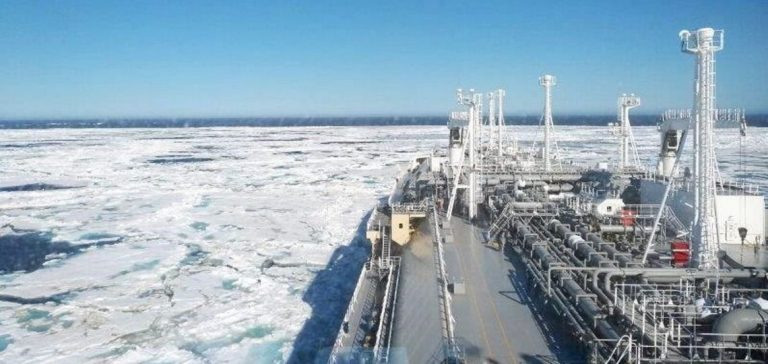India has confirmed that it will not buy liquefied natural gas (LNG) produced by the Arctic LNG 2 project, operated by Russia’s Novatek. This decision is based on compliance with international sanctions imposed on Russian entities involved in the Ukraine conflict. While India has continued to import discounted Russian oil, it wants to avoid any involvement with commodities under strict sanctions due to diplomatic and financial reasons.
Arctic LNG 2, with an annual production capacity of nearly 20 million tonnes when fully operational, is a major project in Russia’s strategy to diversify its exports to Asia. However, India’s refusal as a potential customer further complicates Russia’s position. With this move, Moscow loses a key buyer in the world’s fourth-largest LNG market, which could force the country to focus its exports on other partners, mainly China and smaller markets.
Western Sanctions: A Major Obstacle for Arctic LNG 2
Sanctions imposed by the United States and the European Union have severely hampered the development of the Arctic LNG 2 project. In November 2023, new U.S. measures directly targeted entities and individuals supporting Russia’s war efforts by adding Arctic LNG 2 to the blacklist. The U.S. Treasury Department stated that these sanctions aim to limit Russia’s capacity to increase its production and energy revenues, affecting the long-term prospects of Novatek, the project operator.
The impact of these restrictions is felt throughout the value chain. European and Asian industrial partners such as France’s TotalEnergies, China’s CNPC and CNOOC, and the Japanese consortium Japan Arctic LNG have all had to reassess their commitments. This creates significant uncertainty about future LNG deliveries and the ability of Arctic LNG 2 to meet its production schedules.
Impact on the Asian LNG Market
India’s exclusion changes the dynamics for the Asian LNG market. Traditionally, India has been an active LNG buyer, benefiting from its geographical proximity to Russian projects and its growing need for gas to support its economic development. With this refusal, Asian demand will have to be met by other suppliers, primarily Qatar, Australia, and the United States. This creates a new market balance with possible implications on prices.
Meanwhile, Russia is turning to China to compensate for this loss. In 2023, Novatek signed several agreements with Chinese importers for volumes totaling 7.6 million tonnes of LNG annually, more than half of Arctic LNG 2’s planned annual production. However, concentrating sales on a single market creates a risk of over-dependence, especially if China manages to negotiate favorable rates, exploiting Moscow’s weakened position.
Implications for Russia: Diversification or Isolation?
India’s withdrawal and Western sanctions push Russia to reassess its energy strategy. Arctic LNG 2 was supposed to mark a new era in Russia’s diversification of its energy flows, following the success of the Yamal LNG project. Now, Moscow must reconsider its ambitions and may find itself operating at a loss if it fails to secure other buyers in lower-demand markets.
Pressure on Russia to diversify its customers is increasing due to the risk of overcapacity. If the project cannot operate at full capacity, Novatek may be forced to sell on the spot markets at reduced prices, further increasing financial pressure on the group. The option of restructuring the project is also being considered, although it would significantly reduce long-term profitability.






















